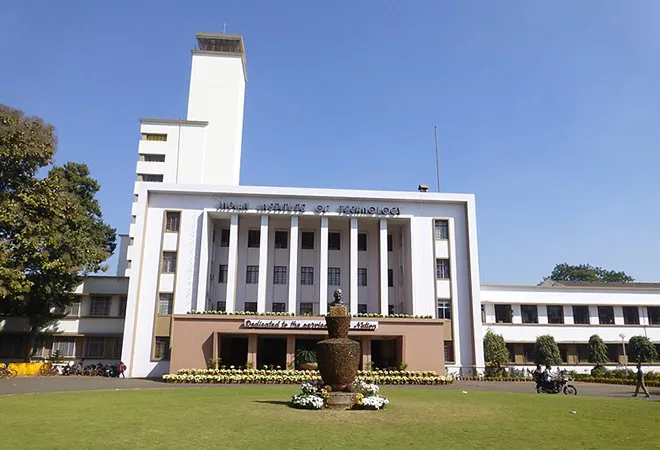
On 4 October the Indian Institute of Technology (IIT) Council announced a significant fee hike for their Master of Technology (M.Tech) courses. Accordingly, the current fee amount of ₹ 20,000 to ₹ 50,000 per year (depending on the IIT) will be gradually increased to ₹ 2,00,000 per year over the course of the next three years. This will only come into effect 2020 onwards and will not be applicable to current students. While the fee waivers/concessions for socially and economically disadvantaged class remains, the monthly stipend of ₹ 12,400 to each student will be replaced with paid Teaching Assistantships (TAs) that could cover up to half the tuition fees.
On face value, this fee increase is astronomical (more than 800 percent) and has been met with resistance from certain stakeholders. However, the IIT Council has defended the move as a necessary one. In isolation, it can be argued that a fee hike for a Masters course in the IITs has been long overdue. Currently, a student from IIT at the undergraduate level pays almost 10 times more than his/her post graduate counterpart. It is a disparity that is part of a larger systemic issue, not least of which, is the diminishing value of M.Tech courses at India’s premier technology institutes.
One of the reasons given for this fee increase is that several students who have enrolled into M.Tech courses leave midway for jobs in the civil services or public sector undertakings. Basically, they use the stipend provided by IIT M.Tech courses as a comfortable intermediary to apply for government jobs. So, increasing the fees will mean only “serious’’ students enroll into these courses. However, this paints an incomplete picture and does not take into account the need to revamp M.Tech courses.
For starters, despite being a post graduate degree, M.Tech courses (even in IITs) have lost relevance in the job market. Most of these courses have undergone little change in the last two to three decades. Students do not perceive the M.Tech degree to be a significant value addition to their profile. Rarely does one hear of students pursuing both their B. Tech as well as M. Tech degrees from an IIT. Placement reports from different IITs show that the undergraduate programmes have better employment rates. For instance, in 2017-19, 87 percent of B. Tech graduates were employed while the corresponding number for M.Tech students stood at 60 percent.
So while increasing fees may deter students who are seeking public sector employment opportunities from enrolling, it does not automatically ensure the presence of a sizeable pool of students who will willingly pursue a course that does not offer commensurate employment opportunities. Every year, a number of Indian students pursue technical post graduate degrees in foreign universities through sizeable education loans, since the potential of prospective employment is significant. However, to just increase fees of the M.Tech courses in IITs without ensuring a proportionate improvement in quality may turn out to be counterproductive.
In addition to the fee hike, the IIT Council has recommended PhD fellowship grants to the top 1 percentile of students appearing for GATE exams. The basis for this reform is rooted in the belief that a Masters degree is increasingly becoming less of a pre requisite for pursuing PhDs – both in India and abroad. However, different college as well as university departments continue to attach value to Masters degree in their points system for faculty appointments. While the All India Council for Technical Education (AICTE) does not prevent direct PhD holders for faculty appointments, the University Grants Commission (UGC) has norms which prevent the same without a Masters degree. Thus, while the M.Tech in its current form may not be an ideal preparatory ground for PhDs, it remains a qualifying one for faculty appointments. Therefore, it is premature to negate its importance for students who plan to pursue an academic career without changing norms for faculty appointments.
In addition to preference towards public sector jobs, the high attrition rate in M.Tech courses is also because of the heterogeneous mix of students in these courses. While the undergraduate courses (B.Tech) in IITs depend on Joint Entrance Examinations (JEE) and then JEE Advanced for admissions, the M.Tech courses use the Graduate Aptitude in Engineering (GATE) exams as the yardstick. This is important since there is a significant variance in the quality of education provided in different engineering colleges across the country. The mushrooming of colleges in the last decade without strict adherence to quality has led to significant disparity among colleges. This is evidenced by the common annual occurrence of a number of engineering colleges having 50 percent vacant seats at the B.Tech level, while all the 23 IITs have hardly any wasted seats for the corresponding courses. Thus, undergraduate students who have received below par engineering education struggle to cope at the Masters level. This is a larger issue that needs structural reforms of the entire engineering education ecosystem.
To be clear, increasing cost of post graduate education in India is in line with global realities of higher education. Specialised technical education demands quality infrastructure and faculty, both of which are investment intensive. Such courses must be dynamic enough to be relevant to the changing nature of jobs, have fruitful industry collaborations and be financially sustainable in the long run. However, increasing fees without making programmes attractive enough to students is a piecemeal solution at best. Undergraduate education in IITs holds immense aspirational value. For post graduate education to do the same, a systemic overhaul must be undertaken – one that includes higher fees.
The views expressed above belong to the author(s). ORF research and analyses now available on Telegram! Click here to access our curated content — blogs, longforms and interviews.




 PREV
PREV


